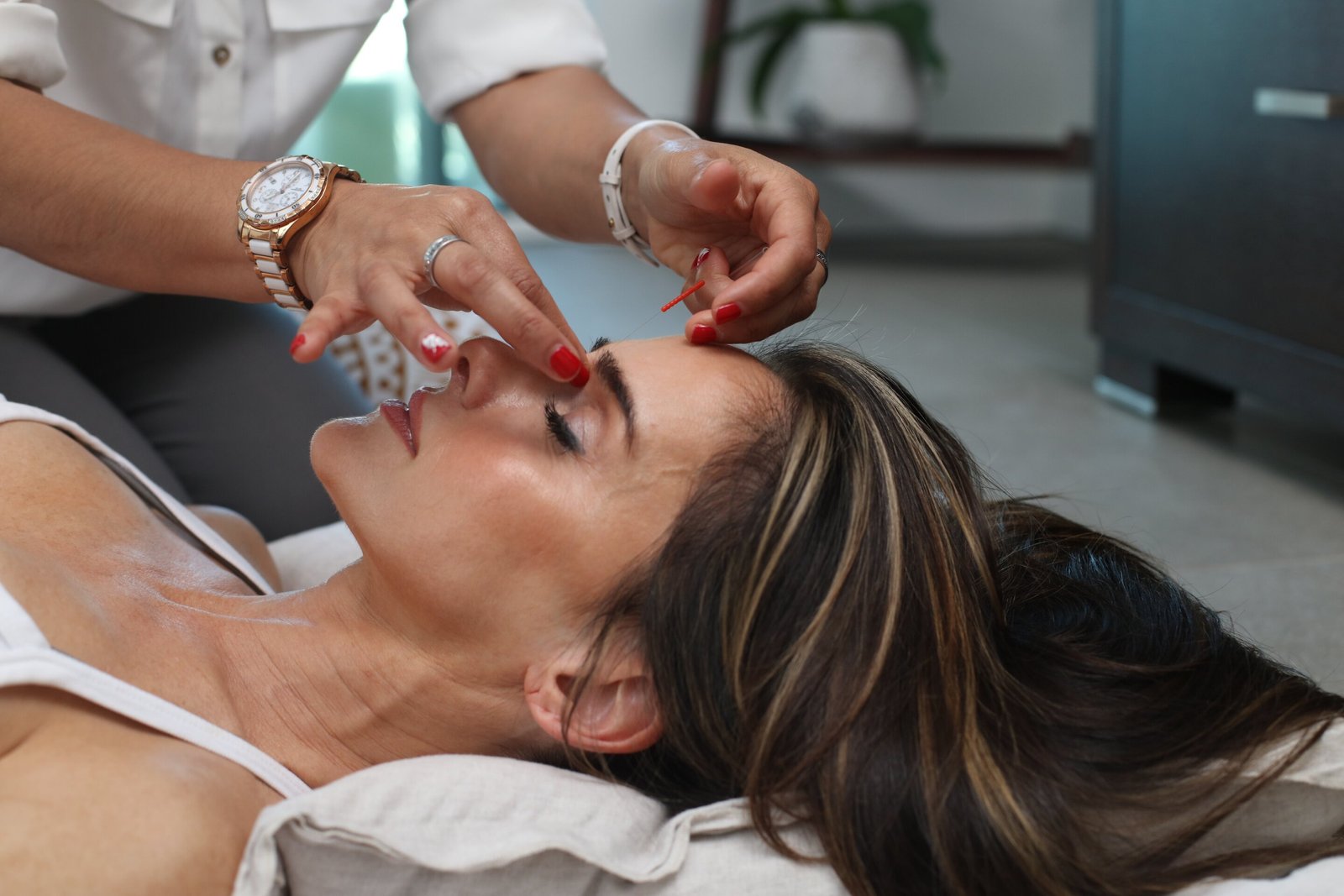
Credit: Unsplash/CC0 Public Domain
Acupuncture significantly reduced hot flashes and other hormonal side effects of endocrine therapy in breast cancer patients, a pooled analysis of three clinical trials from the United States, China and South Korea has been published in the journal Neurology. cancer.
Endocrine therapy blocks the hormone signaling that drives some breast cancers and can be a life-saving treatment, but up to 80 percent of patients who receive endocrine therapy experience hot flashes (sudden, temporary feelings of heat, flushing, or sweating) and other side effects. Many patients who experience these symptoms stop endocrine therapy, which can increase their risk of cancer progression or death.
Other medications can reduce hot flashes, but they have unpleasant side effects. Studies have evaluated the effect of acupuncture on hot flashes in women with early-stage breast cancer receiving endocrine therapy, but results have been mixed.
To provide more information about the potential of acupuncture, researchers conducted a collaborative multinational project of three independent randomized controlled trials in the United States, China, and South Korea that used the same eligibility criteria, acupuncture protocols, and study methods.
One hundred fifty-eight patients with stage 0-III breast cancer were randomly assigned to immediate acupuncture (IA) or delayed acupuncture control (DAC). IA participants received acupuncture twice weekly for 10 weeks, then were followed up for 10 weeks without acupuncture.
DAC participants received usual care for 10 weeks, then transitioned to reduced-intensity acupuncture (once a week) for 10 weeks. Standardized clinical questionnaires were used to assess hormonal symptoms, such as hot flashes, night sweats, vaginal dryness, and joint pain, as well as quality of life related to physical health, functional health, emotional health, and social/family health.
Ten weeks into the study, survey scores for IA participants showed greater symptom reduction compared to DAC participants. Responses showed that 64% of people in the IA group reported improvement in the number and severity of their hot flashes compared to 18% in the DAC group. IA participants reported greater improvements in their quality of life compared to DAC participants.
Scores for IA participants did not change significantly from weeks 10 to 20. DAC participants who received weekly acupuncture during this period experienced significant improvements in symptom scores compared to week 10. No side effects related to acupuncture were reported by any of the participants.
“By managing side effects, our approach may make it easier for patients to stick with their prescribed medications, reduce the risk of cancer recurrence and improve long-term outcomes for breast cancer survivors,” said lead author Weidong Lu, PhD, of Dana-Farber Cancer Institute.
“In practice, patients interested in acupuncture for this purpose might begin with a short-term trial period to assess their response to treatment, particularly in terms of reducing hot flashes and other symptoms. If the trial period shows positive results, patients might then enter a longer-term program of receiving acupuncture regularly for the duration of their antihormonal therapy.”
For more information:
Acupuncture for hot flashes in hormone receptor-positive breast cancer: a pooled analysis of individual patient data from parallel randomized trials. cancer (2024). DOI: 10.1002/cncr.35374
Quote: Study Finds Acupuncture Reduces Hot Flashes in Breast Cancer Treatment Patients (June 24, 2024) Retrieved June 24, 2024, https://medicalxpress.com/news/2024-06-acupuncture-hot-breast-cancer-therapy.html
This document is subject to copyright. It may not be reproduced without written permission, except for fair dealing for the purposes of personal study or research. The content is provided for informational purposes only.

